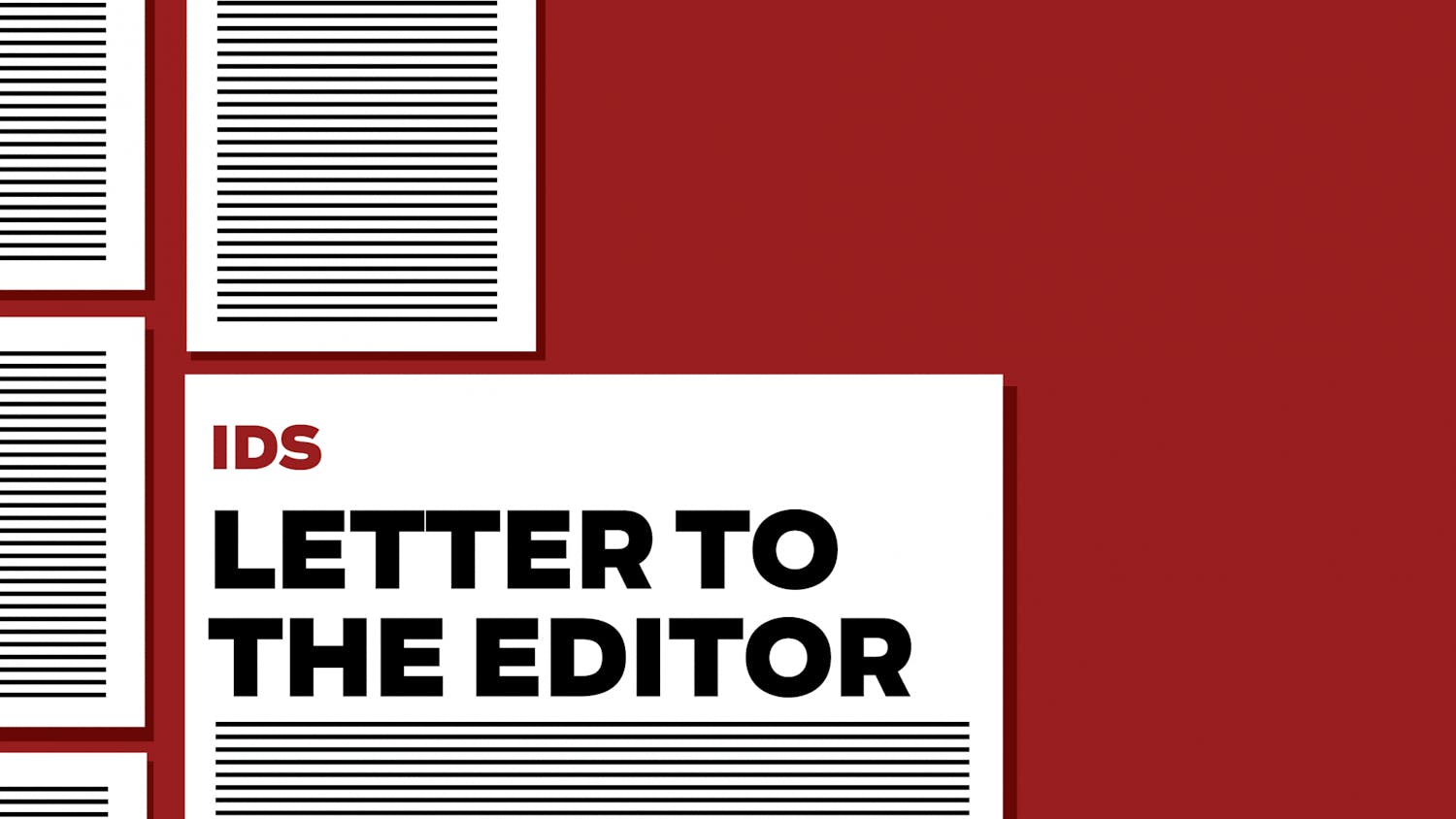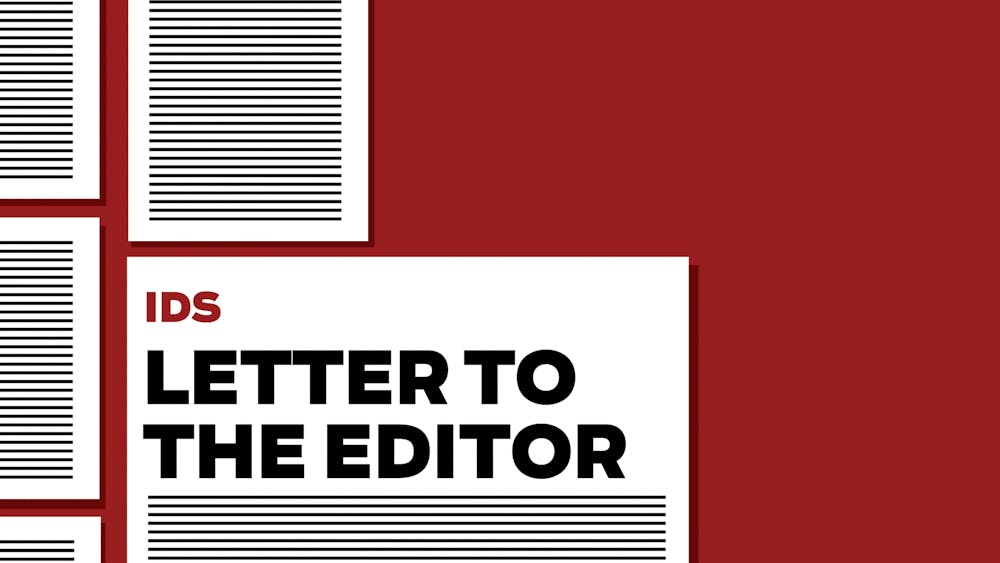Students, Campus Bus Service can ease our woes
I cannot count the number of times I have stood at the Kelley School of Business or Foster Quad going north on Fee Lane and waited for an A bus.
I only ride the bus when it is raining or bitterly cold and while I understand that these are the busiest times for buses, I am sick and tired of watching three and four A buses head south on Fee while I’m still standing in the cold. There are two groups of people who can do something about this.
First, students. How many times have you attempted to get on the bus but the front aisle is packed? Once you finally force your way on the bus, you discover that not only is the back half of the aisle empty because no one has taken the initiative to move, but there are actually empty seats! Not only does standing in the aisle when you could move back to let people on waste time, it’s incredibly rude.
The way I see it, you’re too stuck up to move back and let people on – or the concept is too difficult for you. If the former is the case, get some manners. If it’s the latter, perhaps a college education may prove too daunting for you.
Second, Campus Bus Service: I don’t pretend to know the inside of your business operations, and I’m sympathetic to budget cuts. But there has to be a reason that three buses go south before one goes north, and I would appreciate you looking into it.
Until that happens though, students, take Outkast’s advice and everybody move to the back of the bus.
Ryan Short
IU junior
Reflecting on the universal lessons of the Holocaust
IU and the public owe professor Alvin Rosenfeld a debt of gratitude for keeping alive the memory of one the darkest chapters of human history – the Holocaust. He pointedly asks: “What is it that arises from time to time that places certain human beings under a death sentence merely for being who they are?”
How tragic, then, that Rosenfeld’s Institute for the Study of Contemporary Anti-Semitism on Jan. 25 hosted Dr. Efraim Inbar of the Begin-Sadat Center for Strategic Studies to speak on “The Iranian Nuclear Challenge.” I do not dispute the importance of achieving a nuclear weapons-free Middle East (a cause Dr. Inbar did not espouse) or in any way condone the statements by Iran’s demagogic President Mahmoud Ahmadinejad.
Dr. Inbar not only scorned diplomacy and sanctions and called for an American or Israeli attack on Iran; he also said of Iranian civilian casualties: “I don’t care. My sensitivity to Iranian casualties is very low.”
The lesson of the Holocaust is universal. All life is precious.
David Keppel
Member, Bloomington Peace Action Coalition
Member, Just Peace Task Force of the Unitarian Universalist Church of Bloomington
Questions for President Karzai
On Jan. 28, the Afghan President, Hamid Karzai, proposed the official integration of the Taliban within the current Afghan government at the London Conference. President Karzai’s “Integration of the Taliban” has raised the following questions: Will bribery of the Taliban be an effective and lasting policy?
Wasn’t the objective of the “War on Terror” to dismantle the extremist alliance of al-Qaida and the Taliban? Can Karzai confidently distinguish between an “ideologically driven” Taliban and a “financially motivated” Taliban? Isn’t Karzai’s policy a moral victory for the Taliban? What type of message is Karzai sending to the Pakistani Taliban, Husain Haqqani’s extremist faction and Hekmatyar’s Hezb-e Islami? Was American tax money and blood wasted if Karzai is now offering monetary rewards to the Taliban?
A wise person once said, “There will be no justice, there will be no government of the people, by the people and for the people, as long as the government and its officials permit bribery in any form.”
Solaiman Fazel
Indiana University Department of Central Eurasian Studies
Judicial activism increases rage
“Roeder is no MLK, Jr.” makes a good point but not quite as intended.There’s never room for vigilante-ism, but Scott Roeder’s circumstance most definitely fits the Kansas law as quoted, that justifiable homicide can be based “upon an unreasonable but honest belief that circumstances...justified deadly force.”
It’s a strange law, to be sure, and deserves to be removed, but the judge acted far beyond his purview. His ruling ignores the rule of law and the stated purpose behind it. Roeder’s attorney seems to be off-track, but Roeder does fit the comparisons to Sirhan Sirhan, John Wilkes Booth and James Earl Ray. The sanity of these people was never questioned, only their conclusive actions and results.
Roeder ardently believed abortion was the destruction of viable life, therefore he acted in defense of innocent life. That two-thirds of Kansas, its Constitution, Legislature and Attorney General agree to this perspective muddies the case, but gives strength to Roeder’s conclusion.
The law is heinous and should be changed, but the judge acted inappropriately by side-stepping it. Ignoring an impertinent, inconvenient law is just as wrong for a judge as for a citizen.
Judicial activism increases outrage, hatred of the system and the decisions wrought by it being decried. Abortion is legal, and reasonable regulation helps keep the operators safe.
When the judicial system skirts the standing legislation, as it has done through all the George Tiller investigations of his malfeasance, we can only sorrowfully hang our heads and say, “I told you so.” We are surrounded by people who base their decisions and actions on the fallacious principle that the ends justify the means. Tiller used it, Roeder used it and even some judges are using it. We are on a pathway to injustice on many levels. If we refuse to do what we know is right when it’s inconvenient, we will continue getting this kind of result.
David House
Bloomington resident
Letters
Get stories like this in your inbox
Subscribe




